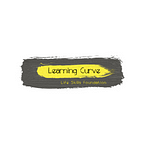I don’t feel happy even though I should…
Have a look at these pictures:
Did any of these images make you feel happy? Some of them might have, and some of them might have not. Or probably, none of these pictures made you happy…what does this mean? Happiness is subjective. Each of us perceives it differently, and we all have different things that make us happy. What is happiness? Happiness is defined as “a feeling of pleasure or sense of satisfaction experienced by an individual, which arises from an object or situation” (Tian, 2021).
Happiness is a ‘good feeling’. Our brains are on a constant search for ways to fulfil this good feeling by getting rid of bad feelings/ threats. For instance, we feel good when we find an opportunity to fulfil the bad feeling/threat of hunger. Human brains are, therefore, constantly in survival mode. Dopamine, endorphin, oxytocin and serotonin are the neurotransmitters or ‘happy chemicals’ that activate when the brain sees something good for your survival and turn off so they can be reactivated when something good crosses your path.
People, therefore, often strive for happiness. Everything that they do, is so they can eventually be happy. Happiness is therefore a ‘destination’. Let us understand how we understand and pursue happiness. According to the Cybernetic approach (Zerwas & Ford, 2021), three components constitute the process of pursuing happiness. First, a happiness goal is set. Second, since there is a discrepancy in the current emotional state and perceived happiness, one uses multiple strategies to regulate their current emotional state. Third, they keep track of the progress they have made towards achieving the goal. This further involves comparing our current state of happiness with the desired state and how we feel about this comparison. For instance, a detective may believe that solving his 100th homicide case will give him the happiness he desires, and therefore does everything in his power to solve the case. However, once he solves the cases, his happiness doesn’t last long. He goes back to feeling the urge to solve more cases.
So, what went wrong?
On the pursuit of happiness is the realization that we are not.
Let’s understand this paradox with the help of an example.
In the show Big Bang Theory, when Sheldon and Amy win the Nobel Prize, they are elated and feel great at first. However, as Sheldon realises that everything around them has begun to change, a wave of disappointment takes over. This is the vicious cycle of happiness or the paradox of happiness. Why does this happen though? This is because your happiness chemicals have been exhausted. Sheldon did continue to enjoy the feeling of winning the Nobel Prize, but his brain continued to look for potential threats like the “change constant”. We, therefore, keep finding ways to renew our feelings of happiness.
So what can we do to manage this paradox?
- Happiness happens. — it is important to remember that happiness is not a destination. It is not something that is achieved. It happens. Once we realize that, we tend to be present at the moment, we actually experience happiness.
- Gratitude: Be grateful for what you have and what you have achieved. A major issue associated with the happiness paradox is the constant dissatisfaction with who we are and what we have. But what we don’t realize is that it is a choice for many of us. We have the opportunity to pursue what we want, so be grateful for it. For instance, you go to a restaurant and order a dish that you have been wanting to eat for a long time. However, when you taste it, you feel disappointed and feel envious of what others are eating instead. Each choice has its own advantages and disadvantages. It is how we perceive a situation that matters. Therefore, be grateful to have the opportunity to make the choice to eat what you want.
- Acceptance: As in the above example, if you have made the choice to eat a particular dish, then accept it. Don’t go about blaming others for choosing better than you. If you decide to be happy, your brain will find things to be happy about. You will still feel disappointed or frustrated, but you will find ways to make yourself happy anyway.
To learn more about the happiness paradox, click here.
References:
Ford, B. Q. (2021, June). The paradox of pursuing happiness. Current Opinion in Behavioral Sciences, 39, 106–112. https://doi.org/10.1016/j.cobeha.2021.03.006
Breuning, L. G. (2015, December 16). Habits of a Happy Brain: Retrain Your Brain to Boost Your Serotonin, Dopamine, Oxytocin, & Endorphin Levels (1st ed.). Adams Media.
